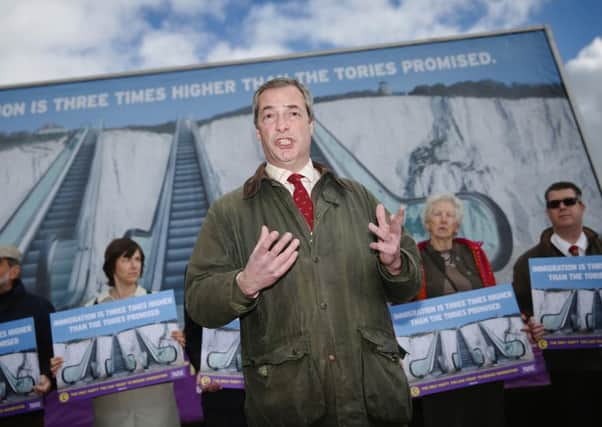David Maddox: Labour have to deal with Ukip


So while Mr Farage went for the Conservative seat of South Thanet in Kent and lost, had he gone a little further up the road and targeted the Labour seat of Dagenham and Rainham on the borders of London and Essex, the chances are he would have won.
Dagenham and Rainham was there for the taking. It had a large Tory vote but had a history of white, working-class angst in the way the BNP had previously had strong support there, and the Dagenham part of the seat was run by a Labour council which, at the time of voting, was into its second month of a refuse collectors’ strike, with piles of bin bags in the streets.
Advertisement
Hide AdAdvertisement
Hide AdBut Labour faced no real opposition. The Tory candidate was selected late and had two 80-year-olds as her entire campaign team, while the Ukip candidate mounted a one-man effort from the garage he runs in the middle of the constituency. Despite the lack of opposition, Labour’s John Cruddas won by only 5,000 votes. In the north of England and South Wales, Labour also saw thousands turn to Ukip, despite the anti-EU party not really trying in those areas.
The message senior Labour figures are digesting is that the wipeout in Scotland could happen in their English and Welsh heartlands too. The reason the Tories withstood Ukip was because they had long prepared their messages to deal with the threat, while Labour ignored it. This may be why Mr Cruddas is in charge of the review about what needs to be done. He has been an advocate of an in/out EU referendum and a tougher line on immigration. As policy chief, he lost those arguments under Ed Miliband’s leadership, but it now seems the party is listening.
It is noticeable that almost all the leadership candidates now back an EU referendum, a line taken up by acting leader Harriet Harman. There is also pressure for tougher lines on immigration and welfare. One thing the Tories capitalised on was that those most against welfare are the working classes with jobs – or white-van man, whom former Labour front-bencher Emily Thornberry infamously sneered at.
The question for whoever takes over as leader of Scottish Labour is whether the same issues and answers work in Scotland. The success of the SNP message suggests not, so maybe if Labour is to survive, it has to be a different party north and south of the Border.